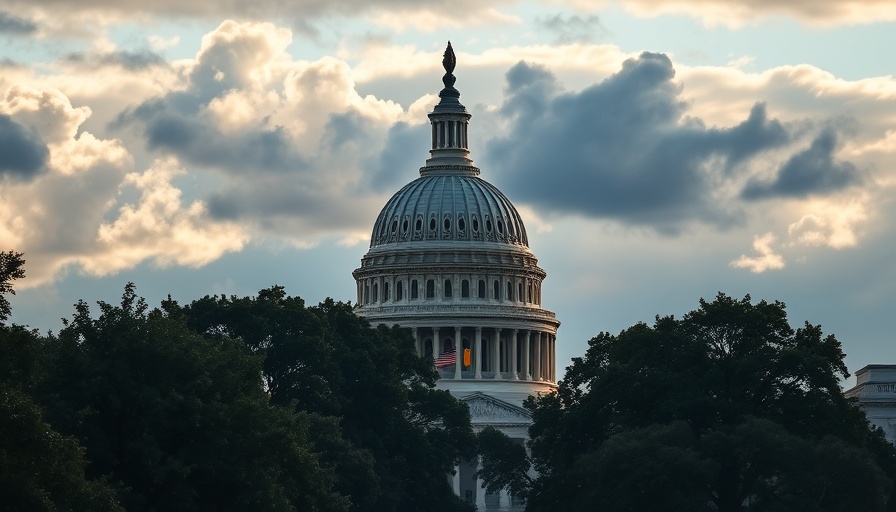
Senate's Recent Move on Food Aid: What's at Stake?
In a significant political setback, a top Senate official has recently rejected proposed cuts to federal food aid payments embedded in a larger legislation package aimed at advancing President Trump's domestic agenda. The rejection has catalyzed a scramble among Republican leaders, compelled to regroup and identify alternative strategies to cover the mounting costs associated with the bill, which seeks to extend tax cuts substantially.
Understanding the SNAP Dilemma for States
The rejected provisions aimed at reallocating some of the financial burdens to the states received a clear dismissal from Elizabeth MacDonough, the Senate parliamentarian. The proposal included stipulations for every state to shoulder a minimum of 5% of SNAP (Supplemental Nutrition Assistance Program) benefit costs, targeting an estimated saving of approximately $128 billion. Such an initiative would shift the fiscal responsibility towards states that are already grappling with economic constraints, raising concerns about its viability and practicality at the local level.
Implications for Food Security in Your Community
The failure of these proposed cuts is more than a legislative obstacle; it directly affects families reliant on food assistance programs. Experts emphasize the paramount importance of SNAP in combating food insecurity among vulnerable populations, including low-income families, children, and the elderly. Removing or restricting access to such programs could exacerbate existing issues, leading to increased hunger rates and nutritional deficiencies across affected demographics. Parents who already work tirelessly to balance their budgets may find their resources even more stretched as the costs of living continue to rise.
The Politics Behind the Bill: More Than Just Economics
While the GOP attempts to navigate this political minefield, it's crucial to understand the broader implications of tax cuts and social safety net reforms. The proposed bill is viewed by many as a reflection of emerging political ideologies that emphasize reduced government spending versus the need for increased protection for marginalized citizens. This debate touches on fundamental issues like economic equality, corporate responsibility, and the role of government in aiding its citizens.
Exploring Counterarguments: Diverse Perspectives
The push for cutting food aid to finance tax cuts has sparked heated discussions across the political spectrum. Proponents argue that reducing government spending is essential in fostering economic growth. They contend that tax cuts benefit everyone by stimulating the economy and creating jobs. On the other hand, critics highlight the moral obligation to provide a safety net for those who struggle to meet their basic needs. These opposing viewpoints create a contentious dialogue in the national discourse, revealing a rift between economic ideology and the human cost of legislative decisions.
Future Predictions: What Lies Ahead for Food Assistance Programs
The future of food assistance programs remains uncertain as both political parties grapple with budgetary and social implications. Observers suggest that the ongoing struggles surrounding SNAP will likely reflect shifts in political power and public sentiment toward welfare programs. As discussions continue and elections approach, there may be increased scrutiny on how lawmakers prioritize budget allocations — weighing the benefits of tax cuts against the immediate needs of their constituents. Additionally, potential adaptations to SNAP could emerge, offering a chance for lawmakers to rethink hunger solutions in light of evolving community needs.
As the national conversation progresses, it’s essential for communities to engage with local leaders, advocate for vulnerable populations, and remain informed about legislative changes that directly impact the well-being of millions. Understanding the interplay between political decisions and their repercussions on everyday lives is crucial. These programs' health can only be ensured through active civic participation and advocacy to preserve essential public services.
As we observe these developments closely, it's clear that ongoing engagement and advocacy will play critical roles in shaping the future of food assistance programs like SNAP that support our most vulnerable communities.
 Add Row
Add Row  Add
Add 




 Add Row
Add Row  Add
Add 

Write A Comment